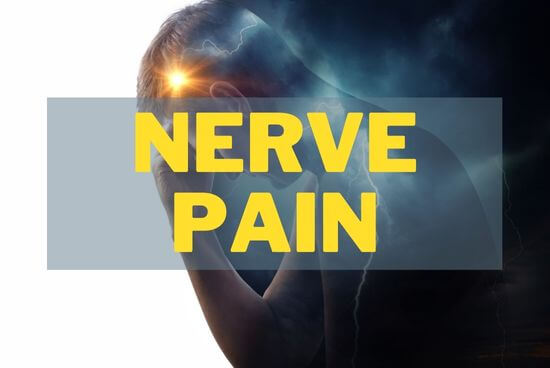Pain is an unpleasant sensation that no one wants to experience. Nerve pain at night is perhaps one of the worst forms of pain. It can be incredibly debilitating and can make it hard to get a good night’s sleep. For those who suffer from nerve pain, it can be difficult to understand why this kind of pain is so intense and how to manage it. In this blog post, we will discuss the causes and treatments for nerve pain at night so that sufferers can find relief and get a better night’s sleep.
What is nerve pain?
Nerve pain, also known as neuropathic pain, is a type of chronic pain caused by injury or damage to the nervous system. It can be felt in different areas of the body, depending on the nerves affected. Symptoms of nerve pain include burning, tingling, stabbing, and shooting sensations that can be sharp, intense, dull, and aching. Nerve pain can also cause numbness and a feeling of pins and needles. This is often described as having an electrical sensation and can affect one area of the body or multiple areas. This can be caused by a variety of conditions, including diabetes, shingles, multiple sclerosis, herniated discs, and even stress.
What causes nerve pain at night?
A variety of conditions, including diabetes, vitamin deficiencies, multiple sclerosis, lupus, shingles, and trauma, can cause nerve pain at night. Diabetes is one of the most common causes of nerve pain at night, as it can lead to damage to the nerves due to high blood sugar levels. Vitamin deficiencies, such as a lack of Vitamin B12, can also cause nerve pain at night. Multiple sclerosis, lupus, and shingles can all cause nerve pain due to inflammation and damage to the nerves. Finally, trauma, such as a car accident or other traumatic incidents, can cause nerve pain at night due to damage to the nerves or muscles in the area.
No matter the cause, it is important to identify and treat the underlying condition to alleviate nerve pain. If you think you might be experiencing nerve pain at night, it is important to make an appointment with your doctor to discuss your symptoms and get an accurate diagnosis.
How can I treat nerve pain at night?
It can be difficult to find relief when it comes to nerve pain. Fortunately, several strategies can be used to reduce your nerve pain at night.
The first step is to identify and address any underlying conditions that may be causing your nerve pain. Make sure you’re up-to-date on any treatments for any chronic illnesses such as diabetes or arthritis. You should also consider taking any necessary medications for your condition as prescribed.
If you’ve already addressed any underlying conditions and are still experiencing nerve pain, it’s time to look into lifestyle changes that may help reduce the intensity of the pain. Exercise can be beneficial for improving nerve health and reducing nerve pain. Consider adding light physical activity such as walking or yoga to your daily routine. You can also try using heating pads or hot baths to help relax tense muscles, as this can help reduce nerve pain.
Overall, there are a variety of strategies you can use to help reduce nerve pain. It’s important to find a combination of lifestyle changes and treatments that work best for you.
When should I see a doctor for my nerve pain?
If you are experiencing any nerve pain, especially at night, it is important to consult a medical professional. A doctor can help you determine the underlying cause of your nerve pain and provide the best treatment plan for your specific situation.
It’s important to be aware of any other symptoms that may accompany your nerve pain, such as tingling, numbness, burning, or shooting sensations. This could be a sign of a more serious problem. It’s also a good idea to talk to your doctor if your nerve pain has been worsening over time or isn’t responding to home treatments.
Your doctor will examine you and review your history, then diagnose and treat you, possibly using imaging tests.
Nerve pain is treatable, but it’s important to consult a doctor if you’re experiencing any nerve pain, especially at night. Doing so can help you identify the underlying cause and get the best treatment for your unique situation.

